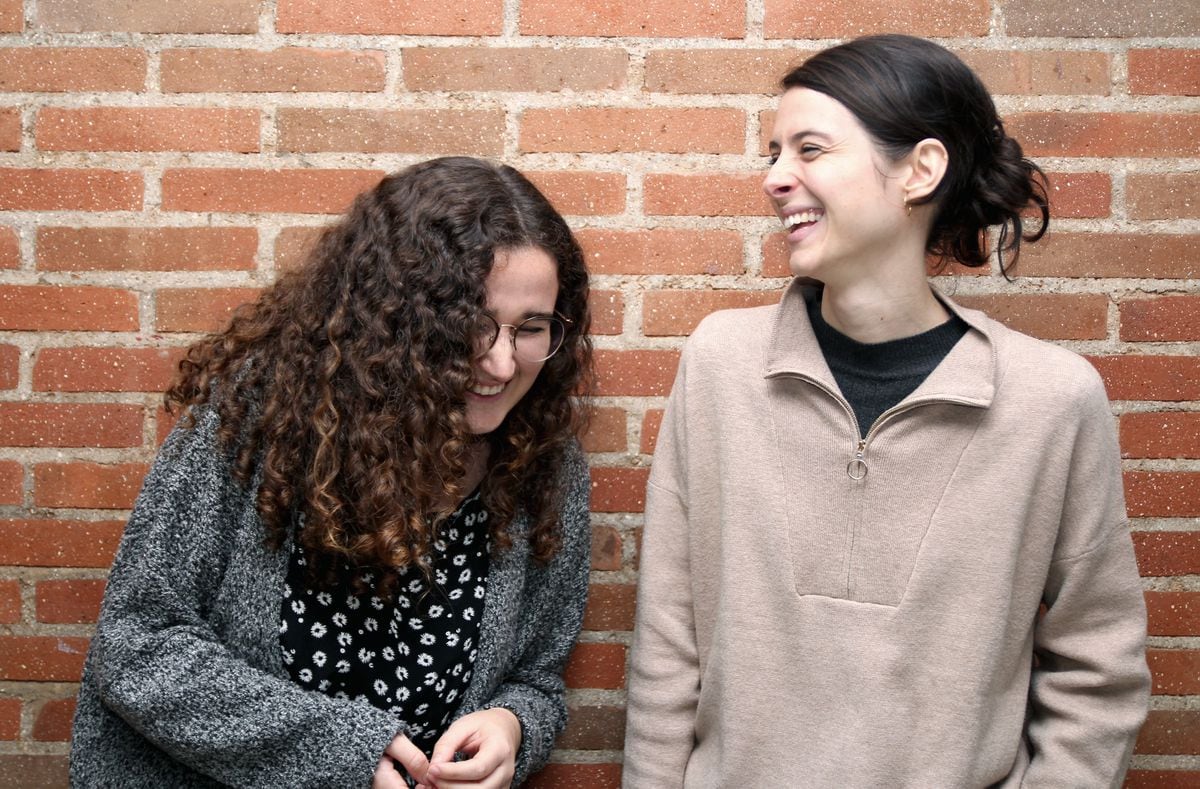Times, uses and customs pass.
The world evolves and, nevertheless, above any type of circumstance, there is something that resists being buried under the rubble that the passing of the years leaves behind: the inevitable tendency to call the generations of young people the throughout most contemporary history.
Those born between 1946 and 1964 belong to the large
baby boomer community
.
Then came the magnetic generation X, disenchanted and individualistic, and it was followed by the so-called millennials, so sociable, so creative, so multitasking... that they gave way to the
centenials
, the so-called generation Z,
immediate, enterprising and born with a digital device under their arms.
It seems that it is necessary to label the different generations of young people, regardless of how long they have lived, with adjectives that almost always have in common aspects related to uncertainty, discontent or the lack of understanding of their elders.
More information
From 'helicopter fathers' to 'sandwich mothers': how hypervigilance creates fearful children without autonomy
And in those we were when the last of the definitions appeared (so far): the generation of glass, women and men between the ages of 15 and 29 who, in the opinion of the philosopher Montserrat Nebrera, author of the concept, represent an archetype of emotional weakness attributed, to a large extent, to parental overprotection.
“They are made of glass because of their emotional fragility, because of their existential vulnerability, the result of the ultra-protection of their parents.
Not surprisingly, their first unnatural cause of death is suicide”, says Nebrera herself.
"But they are also made of glass because of their transparency, which gives them an impressive capacity to receive all kinds of stimuli and process them," she adds.
In this sense, the Bilbao psychologist Luis de la Herrán, a specialist in adolescent care for more than 25 years, is clear: “I would not speak of the crystal generation.
Rather, I would say that the adults who take care of them are and are a generation of
cotton hands
, because they try to avoid, as much as possible, feelings of frustration and boredom, and that is a big mistake”, affirms Herrán.
"If we accustom our adolescents to a certain frustration and a certain boredom, we will be making them stronger."
why are they from
crystal?
Why do they break so fast?
Ana Howe is 26 years old and has just made her debut as a Music teacher in Secondary Education.
Along with other young people of different ages, she has participated in the advisory board of the study.
Crystal Generation.
Más Allá de las Etiquetas
, which the SM Foundation has carried out with the aim of elucidating to what extent the denomination corresponds to reality.
“Due to my family circumstances, I have spent part of my adolescence alone;
I have gotten used to fending for myself at times, so I don't feel overprotected, let alone weak,” says Howe.
His opinion coincides with some of the conclusions of the aforementioned survey, in which not only Spanish, but also Mexican, Brazilian or Chilean youth have participated, and from which it is extracted, for example, that 66% of adolescents and post-adolescents Respondents believe that the term crystal generation is unfairly used to criticize them.
“It is clearly a pejorative label, but I would like to return the question: why are we made of glass?
Why are we considered weak?
Why do we break so fast?
If the definition is used only to criticize the consequences and not to analyze the causes, it will only serve to generate controversy," says Begoña González, a 21-year-old psychology student and Howe's partner on the advisory committee.
The SM Foundation study also yields other types of results, for example, that 74% of young people believe that adults accuse them of lacking effort in studies, at work or in life in general;
or that 62% believe that previous generations had an easier time progressing than current youth.
“It is true that there is a developmental point in adolescence in which traits of uncertainty about the future and misunderstanding by adults come together,” González acknowledges.
And it is at this point that the question arises: does the difference really differ so much?
crystal generation of previous generations?
Empathy-oriented fragility
On October 29, 1965, the British band The Who published one of their most emblematic songs,
My Generation
, whose translated lyrics came to say something like: "People try to bring us down / Just because we're on the move / All they do is horribly cold / I hope I die before I grow old / I'm talking about my generation”.
Only in this first stanza, written a whopping 57 years ago, several of the precepts that today identify the Cristal generation are fulfilled
:
denial of effort and distance from adults, criticism of their way of thinking...
"All generations have challenged the models established at the time," says Ariana Pérez Coutado (34 years old), a researcher specializing in youth and director of the Fundación SM study.
“This group of people born and those born after the year 2000 resist, for example, hearing that the working conditions of their elders were also precarious when they started working and they question whether this is the ideal way to face the labor market for the first time. time," he concludes.
And it is here where the story of fragility begins to gain meaning, always oriented towards vindication.
"At the beginning of the century, the young population was much more conformist, but after 2008, when everything was blown up, things began to change," continues Pérez Coutado.
“Currently, to give an example, 46% of young people belong to an environmental organization and 28% to more than one.
It is an existential question;
In the specific case of the weather, they are aware that the damage is going to hit them for sure, but the same thing happens if we talk about LGTBI, social issues or mental health, for example.
Perhaps the difference lies in the fact that we now have a vocabulary to be able to name the things that happen to us.
In that sense, we do recognize ourselves as fragile, but within a fragility oriented towards empathy”.
Ana Howe goes even further: “We have been educated in emotional intelligence, that it is okay to show fragility, and then what is returned to us when we do so is that we are 'soft'.
Young people are nothing more than a reflection of certain decisions that society has been making.
To this equation, in which one of the variables is the emotional education mentioned by Howe, we must undoubtedly add everything that is related to digital and the pandemic, true differentiating elements of this generation compared to their predecessors. .
“For me, the confinement caught me in the first of the race.
Just when it was one year old, in the second quarter of 2021, the feeling that most of the class shared was of enormous physical and emotional exhaustion, and nobody knew where it came from, ”recalls González.
“Half of my college life, which were supposed to be crazy years, has been restricted.
And that, necessarily, takes its toll ”.
Irene Hernansáiz, a Secondary Education and Baccalaureate teacher, confirms this: “They have made an enormous effort;
they have been asked to stay at home, they have stopped living experiences that are crucial in development… It is profoundly unfair to lump this entire range of youth together”.
However, in the opinion of Montserrat Nebrera "they have come out of the pandemic with greater isolation, connected only digitally, with identity confusion and a certain underlying despair, because they know that it is up to them to live in a time that, like that of their grandparents, it is claudicant ”.
And she ends with an omen, at least, encouraging: "From their pain, due to the breaks they will necessarily suffer, genius will emerge, brighter the more light passes through them."
You can follow Mamas & Papas on
,
or sign up here to receive
our biweekly newsletter
.
Subscribe to continue reading
Read without limits
Keep reading
I'm already a subscriber






/cloudfront-eu-central-1.images.arcpublishing.com/prisa/ENOKQHD33NAGRAFBPP45GKFJGM.jpg)

